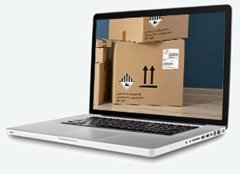Lithium Battery 30% State of Charge Recommendations for 2025
The 2025 Edition of the IATA Dangerous Goods Regulations (DGR) includes new recommendations related to lithium ion batteries in air transportation.
IATA recommends that, starting January 1, 2025, shippers of lithium-ion batteries packed in or with equipment (UN 3481), or in vehicles (UN 3556), abide by a limit on state-of-charge in air transportation. In 2026, some of the recommendations will become mandatory requirements.
A 30% state-of-charge limit already applies to lithium batteries shipped alone by air (UN 3480).

Recommended Limits for 2025
For 2025, the IATA DGR recommends that shipments of the following be offered for transport at a state of charge not exceeding 30% of their rated design capacity:
- UN 3481, lithium ion batteries packed with equipment
- UN 3481, lithium ion batteries contained in equipment *
- UN 3556, Vehicle, lithium ion battery powered *
* An "indicated battery capacity" not exceeding 25% is also acceptable.
Mandatory Limits Start January 1, 2026
Starting January 1, 2026, shipments of the following must be offered for transport at a state of charge not exceeding 30% of their rated design capacity:
- UN 3481, lithium ion batteries packed with equipment where the cells/batteries have a Watt-hour rating greater than 2.7 Wh.
Starting January 1, 2026, shipments of the following must be offered for transport at a state of charge not exceeding 30% of their rated design capacity or an indicated battery capacity not exceeding 25%:
- UN 3556, Vehicle, lithium ion battery powered where the battery has a Watt-hour rating greater than 100 Wh.
While the mandatory limits apply to some lithium battery shipments only starting in 2026, IATA will continue to recommend that all shipments referenced above be offered a state of charge not exceeding 30%.
Mandatory compliance with the 66th Edition IATA Dangerous Goods Regulations (DGR) begins on January 1, 2025. In addition to changes adopted by the IATA, the 2025 DGR incorporates amendments for the 2025—26 edition of the ICAO Technical Instructions.
The official summary of significant changes to the IATA DGR for 2025 is available. IATA Packing Instructions (PI) 965, 966, and 967 for lithium ion battery shipments were updated to reflect the new recommendations (and 2026 requirements):
Significant Changes and Amendments in the 66th Edition (2025)
Online Training to Ship Lithium Batteries 
The Shipping Lithium Batteries Online Course provides hazmat general awareness, security awareness, and function-specific training to help satisfy US DOT (49 CFR), IATA DGR, and IMDG Code training mandates for logistics leaders and hazmat employees involved in shipping lithium batteries by ground, air, and/or vessel. Find a Post
Recent Posts
Compliance Archives
Download Our Latest Whitepaper
Get to know the top 5 changes to OSHA’s revised GHS Hazard Communication Standard at 29 CFR 1910.1200 and how the updates impacts employee safety at your facility.

By submitting your phone number, you agree to receive recurring marketing and training text messages. Consent to receive text messages is not required for any purchases. Text STOP at any time to cancel. Message and data rates may apply. View our Terms & Conditions and Privacy Policy.
